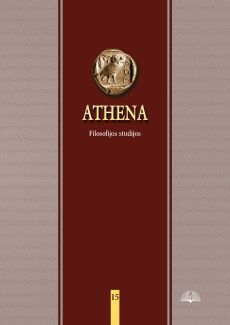Naikinamoji ideologija? Keletas pastabų apie nacionalsocializmo nusikaltimų aiškinimus
Destructive Ideology? A Few Remarks on the Explanation of Crimes of National Socialism
Author(s): Nerijus ŠepetysSubject(s): Political Philosophy, Government/Political systems, Criminology, Fascism, Nazism and WW II, History of the Holocaust, History of Antisemitism
Published by: Lietuvos kultūros tyrimų
Keywords: National socialism; antisemitism; ideological foundations; fiction; historical explanation; Holocaust / Shoah; Hannah Arendt;
Summary/Abstract: The researchers of National Socialism (NS) and Holocaust often emphasize the apparently direct link between Nazis’ ideology and their crimes. They tend to interpret ideology (racial antisemitism in particular) as the foundation and key implication of Holocaust / Shoah. The article argues that the link between ideology and genocide is drawn too fast and too carelessly, and therefore attempts to provide a critical analysis of the explanatory potential of NS ideology, based on primary NS sources and historiographic examples. Nazis themselves post hoc explained many things (including their own actions) as ideologically driven – the outcomes of which we today perceive as Holocaust or Shoah. However, if we truly want to understand and explain these phenomena, instead of following Nazis’ (ideo)logical explanations, we ought to understand the reality of National socialist destructive actions in a more nuanced manner: namely, by differentiating between different types of “destructors”, their motives and self-consciousness, as well as their later explanations of “what happened because of that”. The article is based on Hannah Arendt’s research of totalitarianism and her reflections on evil, as well as Hermann Lübbe, Odo Marquardt and others’ critique of the optimistic historical epistemology.
Journal: Athena: filosofijos studijos
- Issue Year: 2020
- Issue No: 15
- Page Range: 149-168
- Page Count: 20
- Language: Lithuanian

